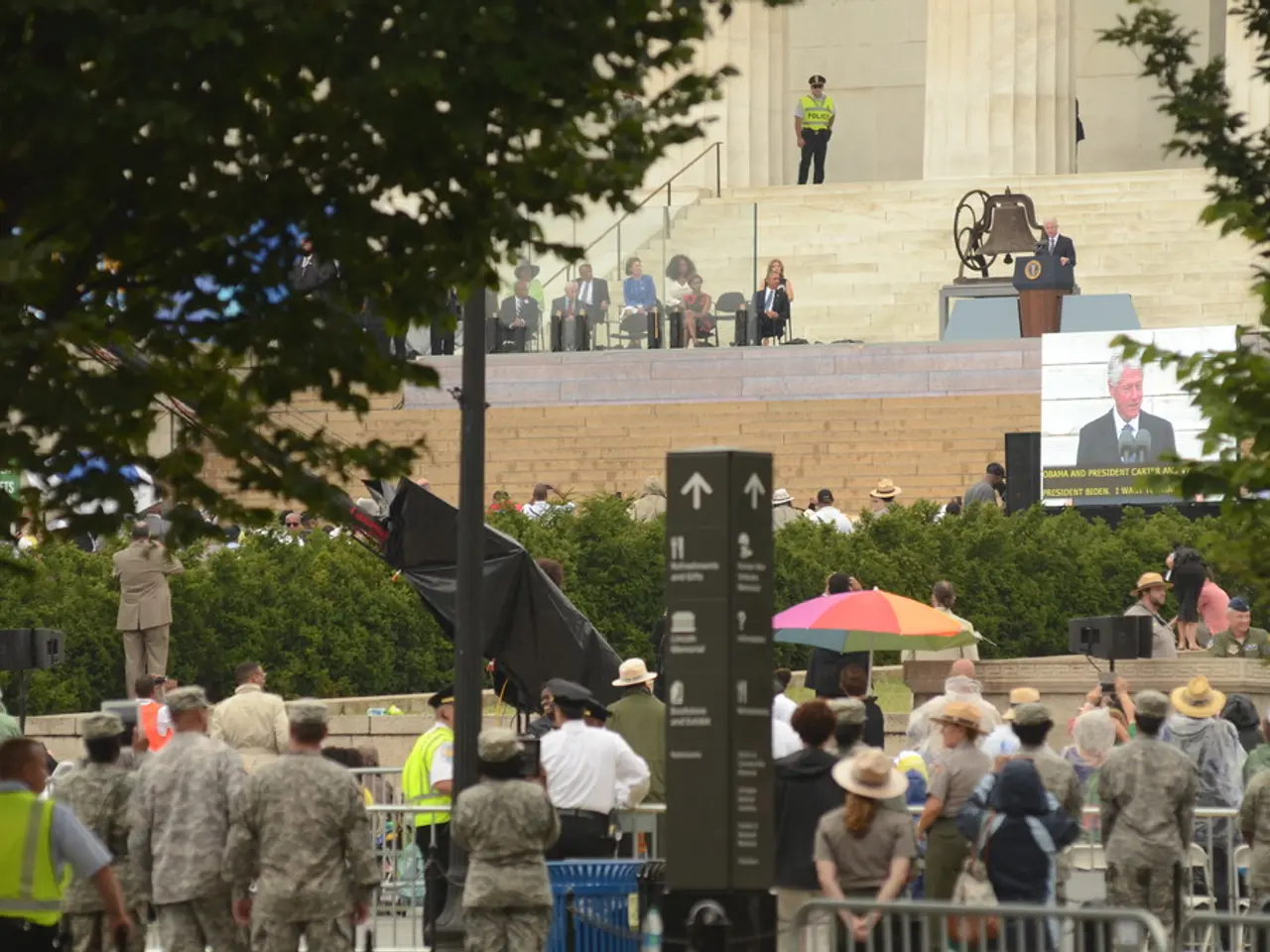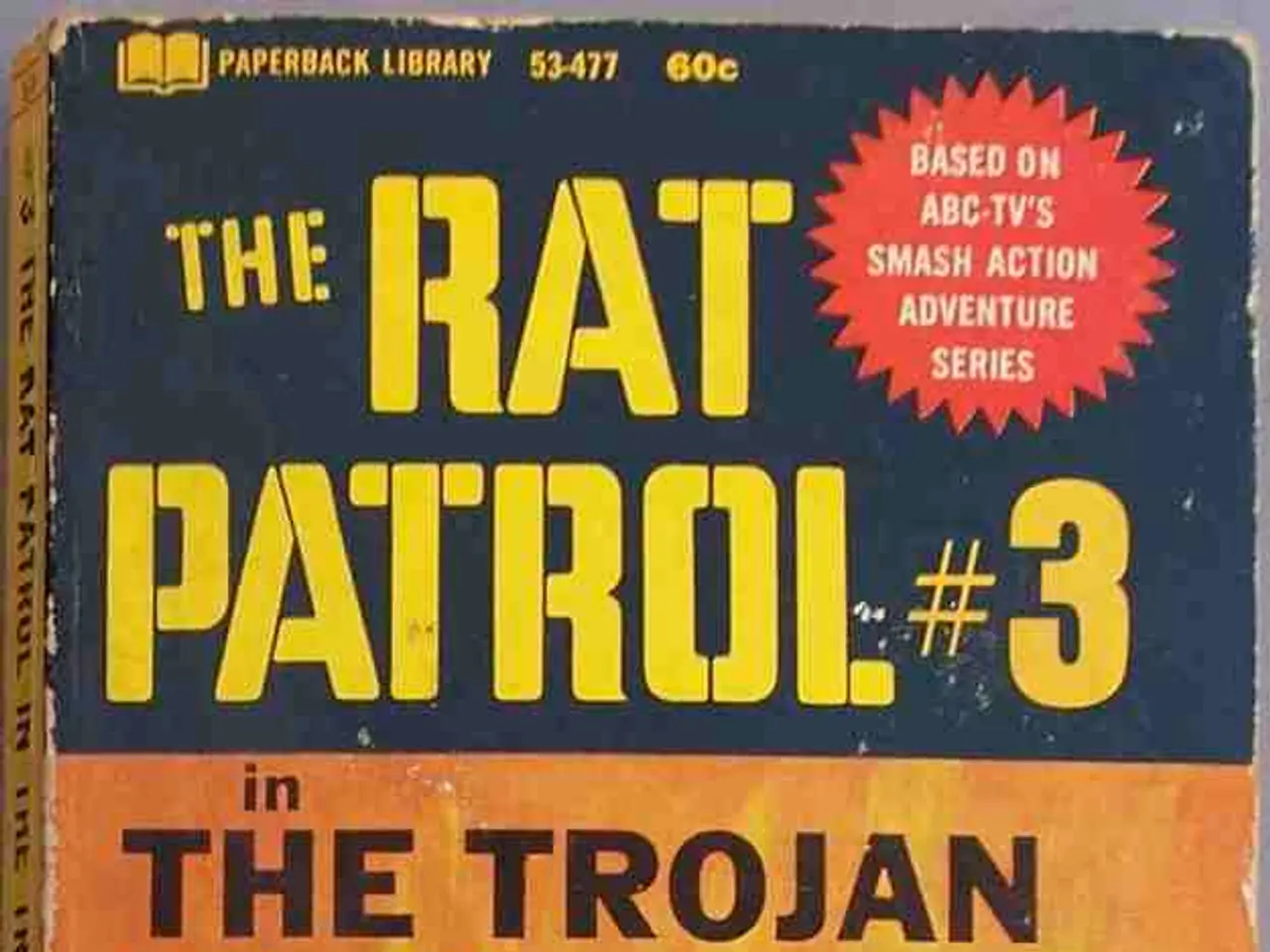Senate GOP members increasingly indicate support for the controversial 'nuclear option' to push through President Trump's Supreme Court and federal judge nominations.
The Senate is currently embroiled in a contentious debate over the potential reduction of debate time for President Donald Trump's nominees. The focus is on Republican efforts to further reduce the post-cloture debate time from the current 2 hours to as little as 10 minutes per nominee, using the unilateral nuclear option.
This move is aimed at clearing a significant backlog of Trump's nominees, with Republicans accusing Democrats of obstruction. However, Democrats show resistance to expedited confirmations of Trump nominees, citing political disagreements and broader budgetary and policy concerns.
In 2017, Senate Republicans had already employed the nuclear option to reduce debate time on most nominations from 30 hours to 2 hours. Now, some Republican senators, such as Sen. Eric Schmitt, propose cutting this further to just 10 minutes. Republicans argue that prolonged debates are deliberate stalling tactics from Democrats.
Democrats, however, are unlikely to agree to the accelerated process. The possibility of Congress allowing President Trump to make recess appointments is quite low, and the vote to slash debate time on nominees may come later this fall, even if a nominee package is agreed upon for the summer recess.
As the debate rages on, senators are preparing to stay in Washington through the weekend to speed confirmation of Trump's nominees. Members of the Agriculture Committee are also preparing for a vote after the August recess.
The challenge involves securing enough Senate votes, as a rules change would ideally require a supermajority, but the nuclear option circumvents that. Republicans have indicated willingness to find bipartisan solutions but remain open to using the nuclear option again to alter Senate rules by simple majority vote.
Meanwhile, the Democratic Party has seen a shift in party affiliation during the second quarter of the year. According to Gallup, more independents are identifying as liberal, not an increase in Democrats outright. The average of US adults identifying as Democrats or Democratic-leaning independents was 46%, compared to 43% for Republicans or Republican-leaners. However, the Democratic Party's favorable rating was at a record low of 34%.
In a separate development, Rep. Seth Magaziner emphasized the need for Congress to clean up its own house to have credibility in discussing executive branch ethics. He is leading negotiations on the House's version of the stock ban legislation, aimed at addressing congressional stock trading.
The House's stock ban legislation is expected to focus on bipartisan support, while Senator Josh Hawley's proposed stock ban legislation would affect President Trump and Vice President JD Vance. Hawley is willing to amend the proposal to exempt Trump and Vance from the buying and selling restrictions and divestment requirements.
The White House has reiterated its support for the pick to chair the Commodity Futures Trading Commission, despite reporting that cryptocurrency executives had lobbied against his confirmation. However, the Agriculture Committee is facing a delay in voting on this pick.
In the midst of these controversies, President Donald Trump has criticized Senator Josh Hawley, calling him "second-tier." Hawley's proposal for a stock ban legislation remains a hot topic in the Senate, with the debate on slashing debate time for nominees adding another layer of complexity to the political landscape.
- The Senate debate over reducing debate time for nominees involves war-and-conflicts in the realm of policy-and-legislation.
- The focus of this debate is on Republican efforts to reduce post-cloture debate time from 2 hours to as little as 10 minutes per nominee, using the unilateral nuclear option.
- Car-accidents and fires are issues that might take a back seat as the Senate grapples with this contentious nominee confirmation process.
- Politics, general-news, and crime-and-justice might find less focus as the Senate engages in prolonged discussions about the nominees.
- Sports, such as football, NBA, MLB, NHL, golf, basketball, and NCAA basketball, could take a longer break from the headlines during this peak period of political discourse.
- Accidents and mishaps in sports-betting and racing events might occur without significant political implications.
- The Senate's focus on nominees might lead to delays in addressing mixed-martial-arts and tennis-related policy concerns.
- The sports-analysis community could find themselves with fewer legislative issues to dissect, as the Senate debates the proposed changes.
- The Democratic Party's ongoing shift in party affiliation, with more independents identifying as liberal, signals a broader societal trend.
- Congress's credibility in discussing executive branch ethics is questioned by Rep. Seth Magaziner, who is leading negotiations on the House's stock ban legislation.
- In the House, the stock ban legislation is expected to focus on bipartisan support, aiming to address congressional stock trading.
- Senator Josh Hawley's proposed stock ban legislation could affect President Trump and Vice President JD Vance, but he is willing to amend the proposal for exemptions.
- The pick to chair the Commodity Futures Trading Commission is facing a delay in voting due to opposition from cryptocurrency executives.
- President Donald Trump has criticized Senator Josh Hawley, fueling an ongoing dispute within Congress.
- Amidst these controversies, the Senate's debate on slashing debate time for nominees adds another layer of complexity to the political landscape.
- Whether it's horse-racing, NASCAR, or NCAF football, the focus remains on politics as the Senate navigates the ins and outs of policy-and-legislation.








